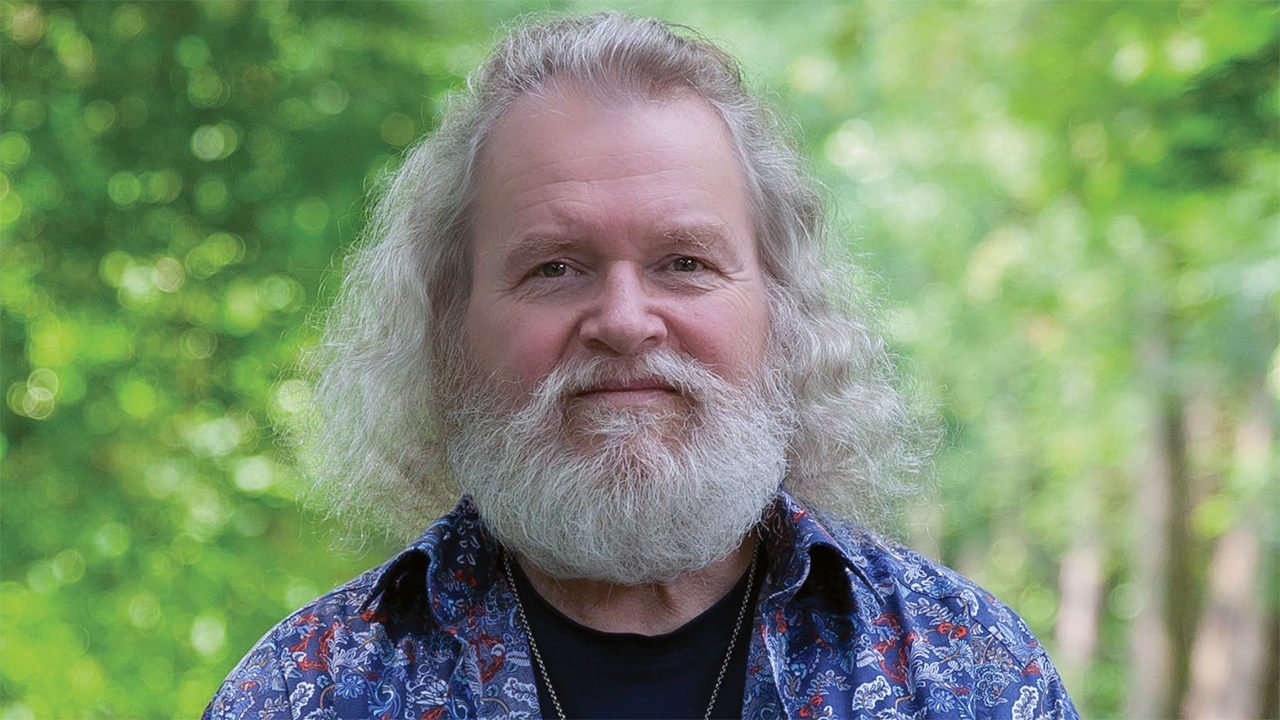Dutch singer and composer Edward Reekers broke all the rules when he not only met but worked with one of his favourite bands. He joined Kayak in 1978, staying put until 1982, before returning in 2003, and then again for a third spell in 2005 that ran for eight more years. His final departure from the group was rather sudden, but paved the way for him to record his fourth solo record - and first in 15 years - a double rock opera affair called The Liberty Project with an all-star cast that includes Steve Hackett, Arjen Lucassen and Damian Wilson.
You joined Kayak for the first time in 1978, when Max Werner no longer wanted to be the singer and in a ‘reverse Phil Collins scenario' demanded to be switched to drums. Unusual circumstances for sure, but was it awkward?
No, because Max made sure it wasn't so. He hated being a singer and it was a relief that I took over from him. From the moment I joined we became the best of friends.
Kayak were your favourite Dutch group. You had sent off a tape with very little expectation of getting the gig.
Yeah! And the next thing you know a phone call comes and your entire life changes.
With you at the mic, the hit song Ruthless Queen brought Kayak huge commercial success. Were you living the dream?
That period of time was like a crash course in being a professional prog musician. When we went to Los Angeles to record Periscope Life [1980], Fleetwood Mac were just leaving the studio [after completing Tusk]. As a little, insignificant Dutch band we thought: “Pinch us, we’re dreaming.”
Talking to Prog in 2017, co-founding keyboardist Ton Scherpenzeel said of Kayak’s original break-up in 1982: “The spirit was gone; it was like Spinal Tap.” Is that how you recall things?
Phantom Of The Night [1978] had been a very big album in Holland and Belgium but we were unable to top it, so there was a nagging disappointment that turned into discontent. That was the seed that eventually caused the break-up.
Why did you return to the band not once but twice?
I’m not really sure! The first time I was asked to fill in for their then-current vocalist Bert Heerink. When I put down the phone my wife said, “But you swore you would never, ever do it.” Second time around things were much happier, I wasn’t invited to be a [sole] singer, which gave me enough distance from the previous situation. I had a really good, intuitive relationship [with co-lead vocalist] Cindy Oudshoorn. That was wonderful.
So why did you and Cindy both quit on the eve of a 2014 tour for the rock opera Cleopatra – The Crown Of Isis, a project that the group had spent two years preparing for?
The love of the music was still here, but the pressure was getting to us – to me anyway. I felt like a pawn on a chessboard.
In that interview with Prog, Ton Scherpenzeel continued to harbour a grudge over it. Are things still tense between you?
Put it this way, we’re not in touch. Ton is an incredibly talented composer, but as human beings we just don’t seem to get along.
After leaving Kayak for the first time you worked as a backing singer for Meat Loaf, among others. How was that?
It’s an entirely different discipline but it was wonderful. Close harmony singing is one of my favourite things to do. On my new album I did all of the arrangements for the backing vocals myself.
You worked in the dubbing of foreign films into Dutch, including Harry Potter and Charlie And The Chocolate Factory. Your voice is also featured as Obi-Wan Kenobi in Star Wars: The Clone Wars. It all sounds fascinating.
It’s very satisfying, yeah. There are many parallels between singing and dubbing because it’s all about timing and melody. My son Trevor got the lead part in the [Dutch version of] Harry Potter, which was amazing. He auditioned like everyone else.
The Liberty Project is the first new music from you in 15 years. Your fourth solo record is a double set that wonders how the Earth might have developed in the wake of a second Big Bang. There are special guests, choirs and narrated segments.
During Covid I decided that now was the time to write but nothing presented itself. All of a sudden something clicked and I thought of the concept. The only way of describing what happened next is to call it a tsunami of ideas.
It’s a complex piece of work that we could loosely term progressive, though there’s diversity in the songwriting.
There’s rock, classical, blues and pop – I just wrote whatever flowed out of me. I’m proud to call it a progressive rock record, but at the same time, why hang a name on music?
You’re a regular collaborator of Arjen Lucassen, your countryman who pays back your past appearances on his records with a cameo of his own.
Arjen really adopted the song he was on [The Disease]. That’s the only way I can describe what happened.
How did you get Steve Hackett involved?
I had met Steve a few years ago. When I sent him the song [The Clash Of Belief] he agreed immediately.
Are you hoping to perform the album live? Is it even possible?
I’ve learned that anything’s possible! We’ve just performed some of the songs at De Boerderij [Holland] with a nice live band and some of the guests. Obviously, I would love to take the full show on the road but at this point I would have to say that’s wishful thinking.
And will there be another record?
Maybe. I’m playing around with a few ideas, but it’s very, very early days. Like I said, anything’s possible.

